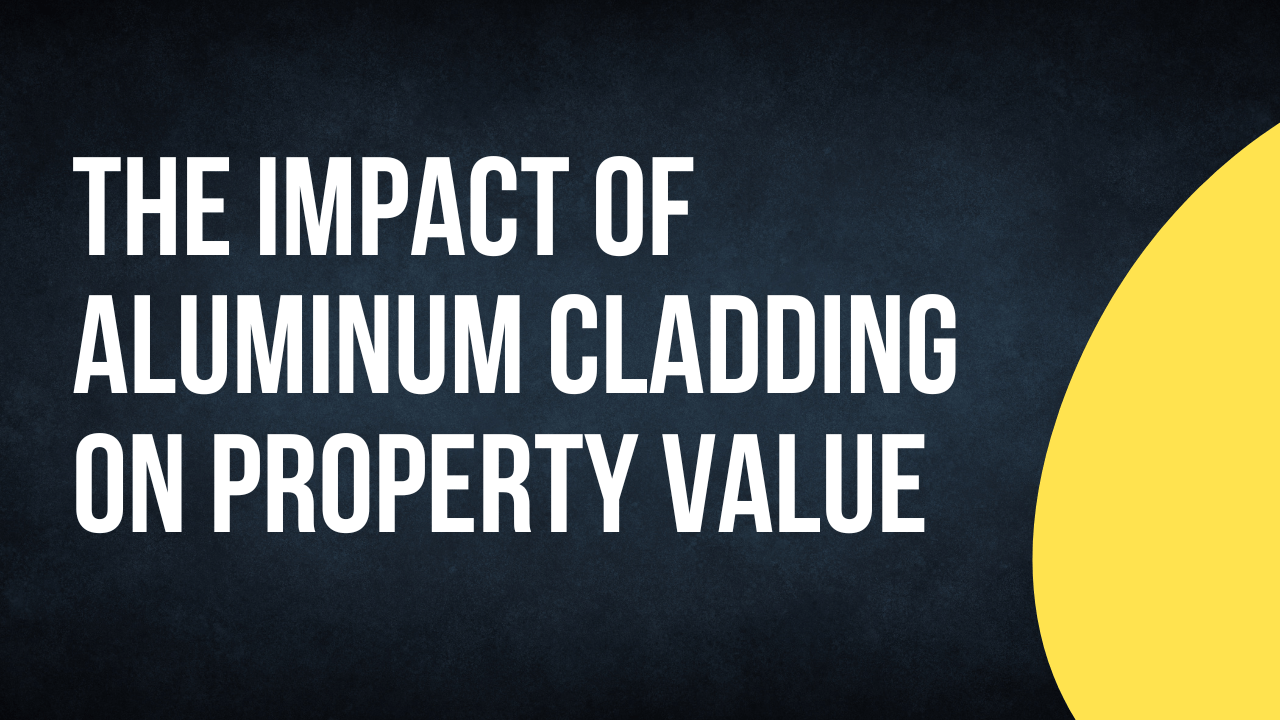Aluminium cladding has become a popular choice for modern buildings, but what impact does it truly have on property value? As homeowners and builders seek ways to enhance their properties, it is essential to understand the benefits and potential drawbacks of aluminium cladding. This article will delve into the multifaceted role of aluminium cladding in real estate, helping you determine if it’s a worthy investment.
Understanding the Role of Aluminum Cladding in Real Estate
Aluminium cladding is a protective exterior layer for buildings, providing numerous benefits that can enhance property value. Its appeal lies in its combination of durability, aesthetic flexibility, and energy efficiency. As the real estate market evolves, aluminium cladding has emerged as a material that meets modern design expectations and contributes positively to property investments.
What is Aluminum Cladding?
A Brief Overview of Aluminum Cladding: Features and Benefits
Aluminium cladding involves the use of aluminium panels to cover a building’s exterior. Key features include:
- Lightweight: Easy to install and handle.
- Durable: Resistant to rust and corrosion.
- Versatile: Available in various colors and finishes to suit diverse architectural styles.
The benefits of aluminium cladding extend beyond aesthetics; it can significantly impact a property’s market value.
Enhancing Aesthetic Appeal
How Aluminum Cladding Transforms Property Exteriors
Aluminium cladding can dramatically alter the visual appeal of a building. Its sleek and modern appearance attracts potential buyers, enhancing curb appeal.
Color and Finish Options: Increasing Curb Appeal
The wide range of colors and finishes available allows homeowners to customize their properties. Options include:
- Matte and glossy finishes for a contemporary look.
- Anodized coatings that enhance durability and aesthetics.
Such customization options make aluminium cladding a favourite among architects and homeowners alike.
Energy Efficiency and Sustainability
The Role of Aluminum Cladding in Reducing Energy Costs
Aluminium cladding is not just aesthetically pleasing; it can also enhance energy efficiency. Properly installed cladding contributes to better insulation, helping to reduce heating and cooling costs.
Eco-Friendly Aspects: Aluminum’s Sustainability Benefits
Aluminium is recyclable, making it an environmentally friendly choice. Using aluminium cladding can also contribute to green building certifications, appealing to eco-conscious buyers.
Durability and Maintenance
Longevity of Aluminum Cladding: A Smart Investment?
One of the most significant advantages of aluminium cladding is its longevity. When properly maintained, it can last for decades without needing replacement.
Maintenance Requirements: Cost vs. Benefit Analysis
While aluminium does require some upkeep, such as occasional cleaning, its low maintenance needs make it a cost-effective option over time. This aspect can enhance property value, as buyers often prefer homes with minimal upkeep requirements.
Market Trends and Buyer Preferences
Current Real Estate Trends Favoring Aluminum Cladding
In today’s market, modern materials like aluminium cladding are increasingly sought after. Homebuyers favor properties that feature contemporary designs and energy-efficient materials.
What Homebuyers Look For: The Importance of Modern Materials
Many buyers prioritize sustainability and low maintenance when choosing properties. Aluminium cladding meets these criteria, making it an attractive option for potential homeowners.
Return on Investment (ROI)
Analyzing the ROI of Aluminum Cladding in Property Renovations
Investing in aluminium cladding can yield a high return. Studies show that properties with modern cladding can sell for higher prices than those without.
Case Studies: Properties That Increased in Value Post-Installation
Numerous case studies indicate significant value appreciation in properties that upgraded to aluminium cladding. These upgrades often lead to faster sales and better offers, emphasizing the material’s impact on ROI.
Comparisons with Other Cladding Materials
Aluminum vs. Wood, Vinyl, and Other Cladding Options
When compared to traditional materials like wood and vinyl, aluminium cladding offers several advantages:
- Durability: More resistant to pests and weathering.
- Maintenance: Requires less upkeep than wood.
- Aesthetic Versatility: Available in a broader range of finishes.
Pros and Cons: Is Aluminum the Best Choice?
While aluminium cladding has many benefits, it’s essential to consider potential downsides, such as initial cost. Weighing these factors helps in making an informed decision.
Potential Drawbacks
Common Misconceptions About Aluminum Cladding
Despite its many benefits, aluminium cladding is sometimes perceived as cold or uninviting. However, with the right design and color choices, it can create a warm and welcoming atmosphere.
Addressing Concerns: Is the Investment Worth It?
It’s crucial to assess whether the benefits of aluminium cladding align with your specific needs. Consider factors such as climate, property type, and personal preferences before making a decision.
Conclusion
Summarizing the Benefits of Aluminum Cladding on Property Value
Aluminium cladding can significantly enhance property value through its aesthetic appeal, energy efficiency, and durability. As modern architecture increasingly favours sustainable materials, aluminium cladding stands out as a smart investment.
Final Thoughts: Making an Informed Decision
Ultimately, the decision to invest in aluminium cladding should be based on a thorough evaluation of its benefits and potential drawbacks. Consult with professionals to explore your options and determine the best path for your property.



